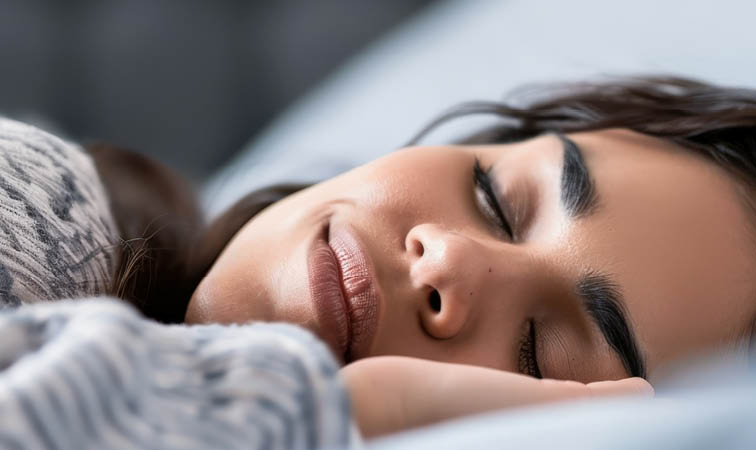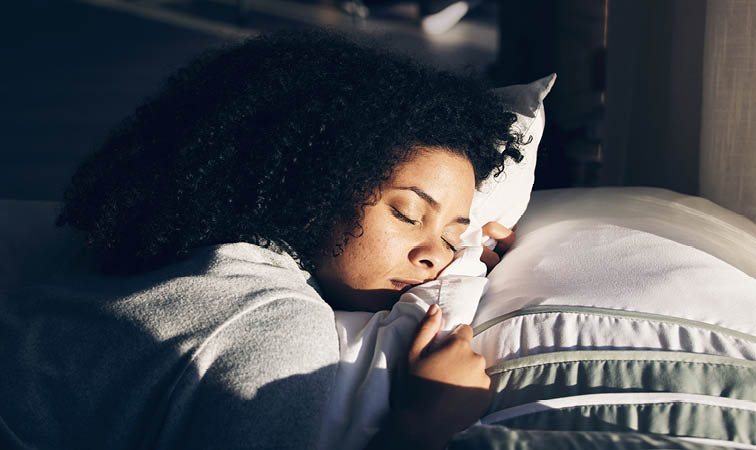About This Lesson
Sleep for Happiness is a science-backed, family-friendly wellbeing skill that helps students ease into strong sleep routines as they head back to school, because better sleep means better focus, learning, and mood.
Grounded in the research of sleep scientist Matt Walker, these printable activities, designed for use at home or in the classroom, show how sleep enhances emotional regulation, supports memory, and restores mental clarity.
Perfect for transitioning from summer to school-year schedules, you can encourage your students and families to explore small, evidence-informed changes. For example, in this activity, students become detectives of their own sleep habits, tracking their routines and rating sleep quality each morning to discover what works best for their body and mind.Share with your students' families so everyone can start the year more rested, focused, and connected!
Here’s what you’ll get:
- Sleep tracker for students and families
- Self-rating prompts to reflect on sleep quality
- Access to a unit study about Sleep for Happiness
Why you’ll love this activity:
- The activity is easy to customize in your classroom or at home
- You can use this resource as part of a comprehensive, science-based unit study
- The associated free unit study for Sleep for Happiness comes with activities, downloadable worksheets, and even IEP and BIP recommendations tailored specifically to students with autism
- Encourages emotional literacy and growth in social-emotional learning (SEL)
Ways to Use
- Group activity for summer program
- Incorporate into SEL curriculum
- Integrate into small groups and/or individual counseling sessions
- In science or health class to explore habits and wellness
- As a family challenge to track sleep together
What is Sleep for Happiness?
Sleep for Happiness is a science-backed wellbeing skill that helps students and families explore how high-quality sleep supports both physical health and emotional wellbeing. More than just rest, sleep is an active process that restores the brain, regulates emotions, and boosts happiness.
Grounded in the work of leading sleep scientist Matt Walker, this skill highlights how small, consistent habits like setting a regular bedtime, limiting screen time, and creating a calming routine can make a big difference. Whether you’re struggling with sleep or just want to feel better day to day, this resource offers practical, inclusive strategies to help all learners, especially those with autism, unlock the benefits of better sleep. Better sleep means better focus, stronger relationships, greater resilience, and a happier, more balanced life.
Science of Sleep for Happiness
Research consistently shows that quality sleep is a cornerstone of happiness and life satisfaction. Sleep doesn’t just impact physical health; it also plays a vital role in wellbeing. Scientists have discovered that sleep plays a critical role in regulating mood. In fact, research by leading sleep scientist Matt Walker shows that during sleep, the brain processes emotions, consolidates memories, and repairs itself, promoting mental clarity and emotional resilience.BENEFITS
People who cultivate regular, high-quality sleep are more likely to experience:
- Higher levels of happiness
- Reduced stress and greater emotional regulation
- Improved cognitive functioning, including focus, memory, and decision-making
- Greater resilience to mental health challenges, including reduced risk of depression and anxiety (linked directly to better REM sleep)
- Improved relationships due to better mood and patience
- Enhanced cell growth in the brain
- Increased life satisfaction and overall wellbeing
Looking for More Sleep for Happiness Resources?
* Explore the free Sleep for Happiness Unit Study, which includes teaching slides, additional worksheets and activities, and even IEP and BIP recommendations tailored specifically to students with autism.
Proof Positive’s resources are and will always be free. Be well!
Bonus access to full lesson plans and unit studies on the skills of happiness at our Skill Center













